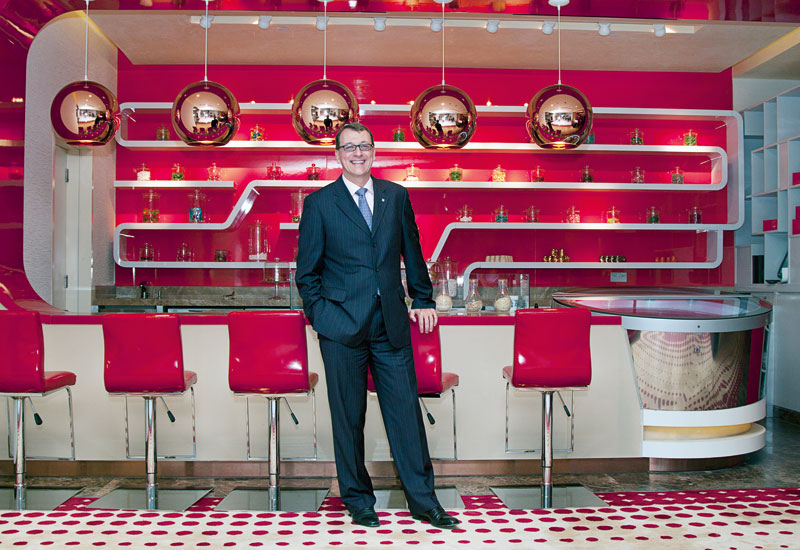For a big hotel, the public spaces seem quite limited. How do you cope with this?
That’s an interesting point. If there is a weakness in there it’s that the public areas are reasonably small compared to the size of the hotel.
So we had to think about that and compensate that in the way we organise the service in this hotel.
If you look at where we welcome guests on the ground floor, it seems a bit limited in terms of space. It’s very nice, cosy, but effectively when there are 500 rooms it’s very small.
So we have another check-in counter at level five. We have a group of people called welcomers who are very attentive in order to lead people there. We also have another level for the four executive floors where those guests can check in as well.

| Advertisement |
On the subject of check-in, Pullman is the first hotel in Dubai to have self-service kiosks. Why, and how does it meet Dubai’s security standards?
It’s a brand standard for Pullman, we are supposed to have up to four kiosks in each hotel. The guest comes with or without a reservation, scans his passport, puts his credit card there and the key comes.
When he leaves he does the same, the kiosks ask about mini bar consumption, and the receipt comes out there. But this machine must be interfaced with the international payment system of the hotel.
The police agreed to let us use this on one condition — we must control that the passport corresponds to the person checking in. We have a code to enter in the kiosk, so in order to be sure, we have a welcomer who can check that the passport corresponds to the person and then enters this code.
You will find kiosks in some budget hotels. But the object is not the same. In the budget hotel it’s primarily to save on staffing. But it has been proven that if you don’t do 50% of your check-in on the kiosk, you don’t save any staff.
But in Pullman it’s a completely different approach; we want to give an alternative to the guest. But we must be clear that if we don’t invite the guest to use the kiosk, naturally he won’t go until he is used to it. In Paris, for the six Pullmans, 20% of the guests use kiosks. Among this 20%, 80% is for check out.
What are Pullman’s unique selling points in terms of service?
When you bring a new chain into the market, it’s not only a new building or location, you have to bring something else, something different. When Accor decide to relaunch Pullman [as an upscale brand following Sofitel by Accor’s rebranding as a luxury chain several years ago], they did a lot of research and development into HR.
I’m very HR-oriented so I was very interested in this experience and we put into practice what they theorised three or four years before. The main change is effectively the modification of the organisation chart at the reception area.
In a hotel, typically you have a front office manager, assistant front office manager, a group of supervisors and the receptionist, you have a group of concierges and a group of guest relation officers, against whom I have a certain reaction because it usually means young pretty ladies doing nothing — sometimes smiling at you, but not always.
We decided at Pullman to regroup these three groups and we created a hospitality team called welcomers. The front office manager is called a welcomer manager and their staff is multifunctional.
They have been trained and recruited for that purpose. They should be able to talk about the city, checking in, changing money, checking out, etc.
The idea of the welcomer is not to always be behind the desk. When you come to a hotel and you have four girls behind the desk and they are behind their computers, I never know what they are doing.
So the idea is to have them physically in front of the counter. This way, you give guests the impression that you are really welcoming them and that makes the difference.
You have to put that in the mind of your staff, especially when you recruit a concierge who was at the Ritz-Carlton and say now you are ‘a welcomer’; you have to explain what it means. It’s a new attitude hotel for business travellers.









 Search our database of more than 2,700 industry companies
Search our database of more than 2,700 industry companies









